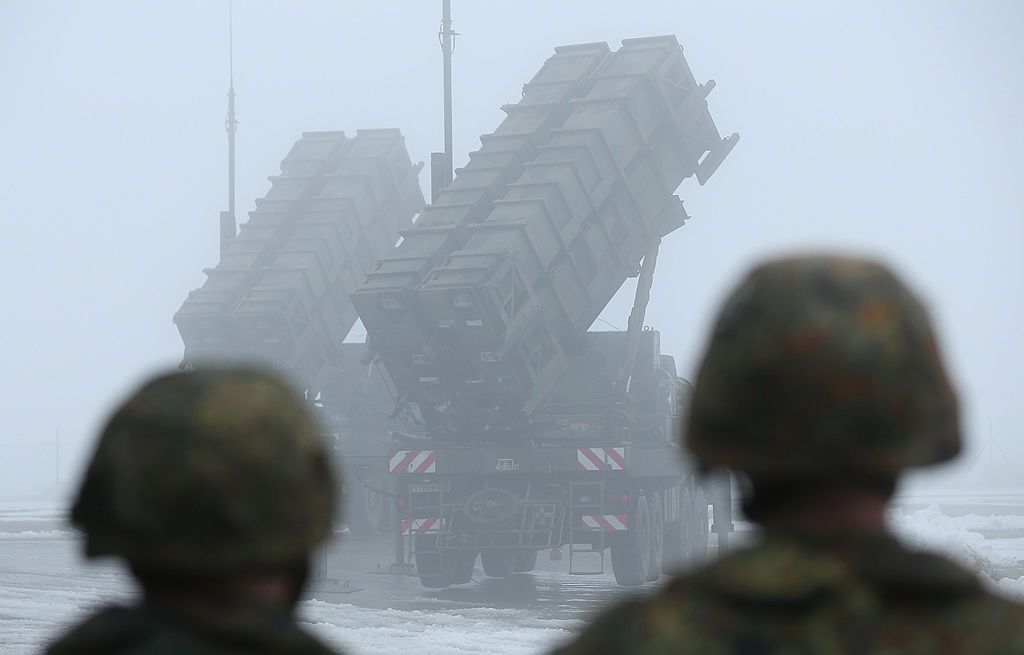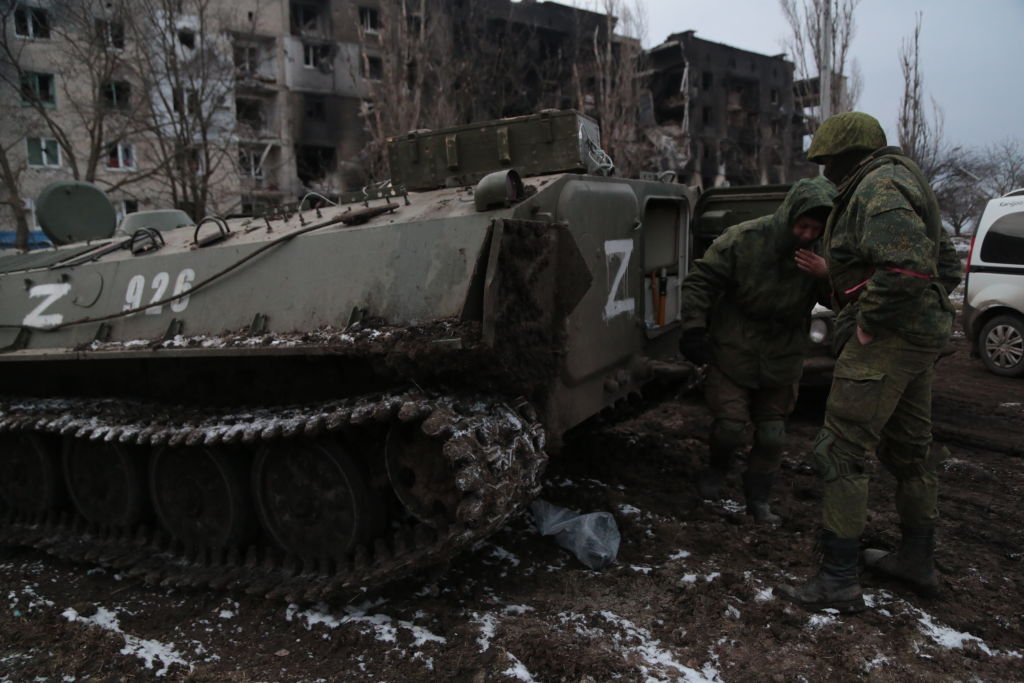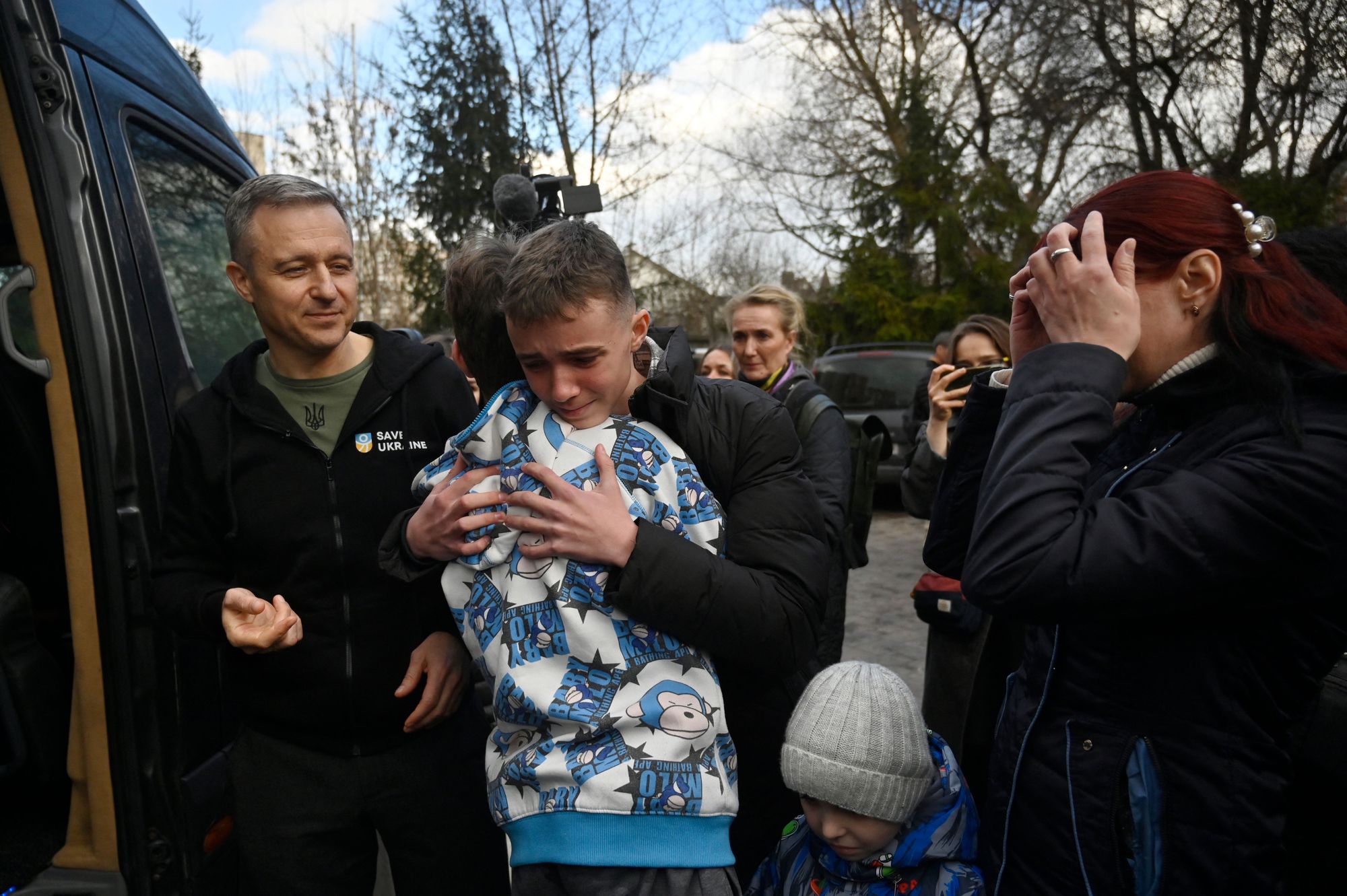Ukraine war latest: Russian missile attack kills civilians; Ukrainian brigade reports small gains near Bakhmut

Key developments on May 18:
- Russian attacks kill 2, injure 5 in Odesa, Kharkiv oblasts
- Ukraine's military reportedly makes gains in Bakhmut
- Russian troops forcibly conscript locals in occupied territories, says official
- African leaders expected to visit Moscow with 'peace mission' in June, Russian Foreign Minister says
Russian May 18 attacks on Odesa and Kharkiv oblasts killed two civilians and injured five others, local authorities reported.
A residential building was directly hit in the village of Tsyrkuny in northeastern Kharkiv Oblast. A 52-year-old man was killed, and two more were injured, according to Governor Oleh Syniehubov.
All the injured have been hospitalized.
Due to its proximity to the Russian border, Kharkiv Oblast has been targeted by Russian attacks on a near daily basis since Feb. 24, 2022.
A Russian overnight missile attack on Odesa killed one and injured three people, according to Serhii Bratchuk, a spokesman for the regional military administration.
Natalia Humeniuk, a spokeswoman for Ukraine's Southern Command, said on national television that an industrial facility on the outskirts of Odesa was hit, and the two injured people were the guards working there.
Russia launched several missile attacks against Ukraine from 9:00 p.m. on May 17 until 5:30 a.m. on May 18, firing 22 long-range X-101/X-555 missiles from two Tu-160s and eight Tu-95s, six Kalibr cruises missiles from the Black Sea, and two Iskander missiles from ground-based operational-tactical missile systems.
Ukraine's air defense downed 29 out of 30 Russian missiles, two kamikaze drones, and two reconnaissance drones, according to the General Staff.
Kyiv was once again the main target of the attacks. According to Andrii Nebytov, the Kyiv Oblast police chief, no significant damage was recorded from falling debris, nor were there any casualties.
The previous mass attack came on May 16, during which Ukrainian air defense successfully shot down 25 Russian missiles targeting Ukraine overnight, including six Kinzhal ballistic missiles.
However, Russia was able to slightly damage the Patriot air defense system, CNN reported on May 16. U.S. officials do not believe the Patriot system must be removed from the battlefield for repairs, according to the followed up report on May 17.
The General Staff of Ukraine's Armed Forces said in its 6 p.m. update on May 18 that it recorded 23 airstrikes and 36 shelling over the past 24 hours against Ukraine's forces and settlements.
Russian forces also attacked Sumy, Chernihiv, Luhansk, Kharkiv, Zaporizhzhia, and Kherson oblasts on May 18, the military reported.
Eastern Donetsk Oblast is the primary military goal for Russian forces, as Moscow aims to occupy the entire region, more than half of which it currently controls.
The region is the site of the war's fiercest fighting.
Marginal gains reported in Bakhmut
Russian forces are trying to capture Bakhmut in Donetsk Oblast, where Ukraine's forces repelled several Russian assaults, according to the General Staff.
However, Ukraine's 3rd Assault Brigade said it had made marginal gains during the counteroffensive in the western outskirts of the embattled town of Bakhmut on May 18.
The brigade reported it had regained 700 meters. The General Staff hasn't commented on the offensive operation. The Kyiv Independent couldn't independently verify this claim.
Bakhmut has been the epicenter of fighting between Ukrainian and Russian forces for almost a year.
The Wagner mercenaries have served as the primary shock troops in Russia's attempts to expand control over Donetsk Oblast. However, they have made small gains since last June.
Ukraine still holds some outskirts of Bakhmut.
"No matter what Russia does, its aggression will be defeated," President Volodymyr Zelensky said.
Russian troops forcibly conscript Ukrainians in occupation
Deputy Defense Minister Hanna Maliar said the Russian forces set up field camps in occupied Luhansk Oblast to train forcibly conscript locals and force them to fight against Ukraine.
Maliar said that Russia carries out "raids and detention of local residents" in occupied territories to forcibly conscript them.
As training is finished, it would be mandatory to participate in combat missions in the Russian-occupied territories, according to the report.
Russia started the forced conscription of locals in occupied Donetsk and Luhansk oblasts in mid-February 2022, a week before Russia's full-scale invasion of Ukraine began.
Many were grabbed by local Kremlin-controlled militants and forcibly sent to the front lines to fight against Ukraine. Most of them were sent without any training, equipment, or combat experience.
Russia often uses Ukrainians, forcibly mobilized in the occupied territories, as "cannon fodder."
Forced conscription in occupied territories constitutes a war crime, according to the Geneva Conventions. It also violates the Rome Statute of the International Criminal Court.
Lavrov claims African leaders to visit Russia in June with 'peace plan'
Russia's Foreign Minister Sergey Lavrov said on May 18 that a delegation of African representatives would visit Moscow "in mid or late June."
Several African countries are set to present a "peace plan" that would envision steps to end Russia's full-scale war. The plan is currently unknown.
"We would like to understand what specific initiatives South Africa's President and his African colleagues would like to formulate in order to discuss with us," Lavrov told the press conference after meeting with Uganda's Foreign Minister Jeje Odongo in Moscow.
South African President Cyril Ramaphosa is willing to come to Ukraine on a "peace initiative" with the leaders of other African countries, Zelensky's spokesperson Serhii Nykyforov told Ukrainska Pravda news outlet on May 17.
News reports suggest that the leaders of South Africa, Zambia, Senegal, the Republic of Congo, Uganda, and Egypt could join the coalition.
South Africa has been caught up in several public scandals regarding the war in Ukraine.
In mid-May, the U.S. accused South Africa of supplying weapons and ammunition to Russia. However, South Africa denied the accusation.
Furthermore, South Africa, as one of the 123 countries party to the Rome Statute, would be obliged to execute arrest warrants issued to Russian President Vladimir Putin and the Children's Rights Commissioner Maria Lvova-Belova.
The International Criminal Court issued an arrest warrant on Putin and Lvova-Belova on March 17. Ramaphosa said his country wouldn't arrest Putin if he visits the country, adding that the ICC has an "unfair treatment" of some countries.On April 25, Ramaphosa's office walked back on his public statements.














